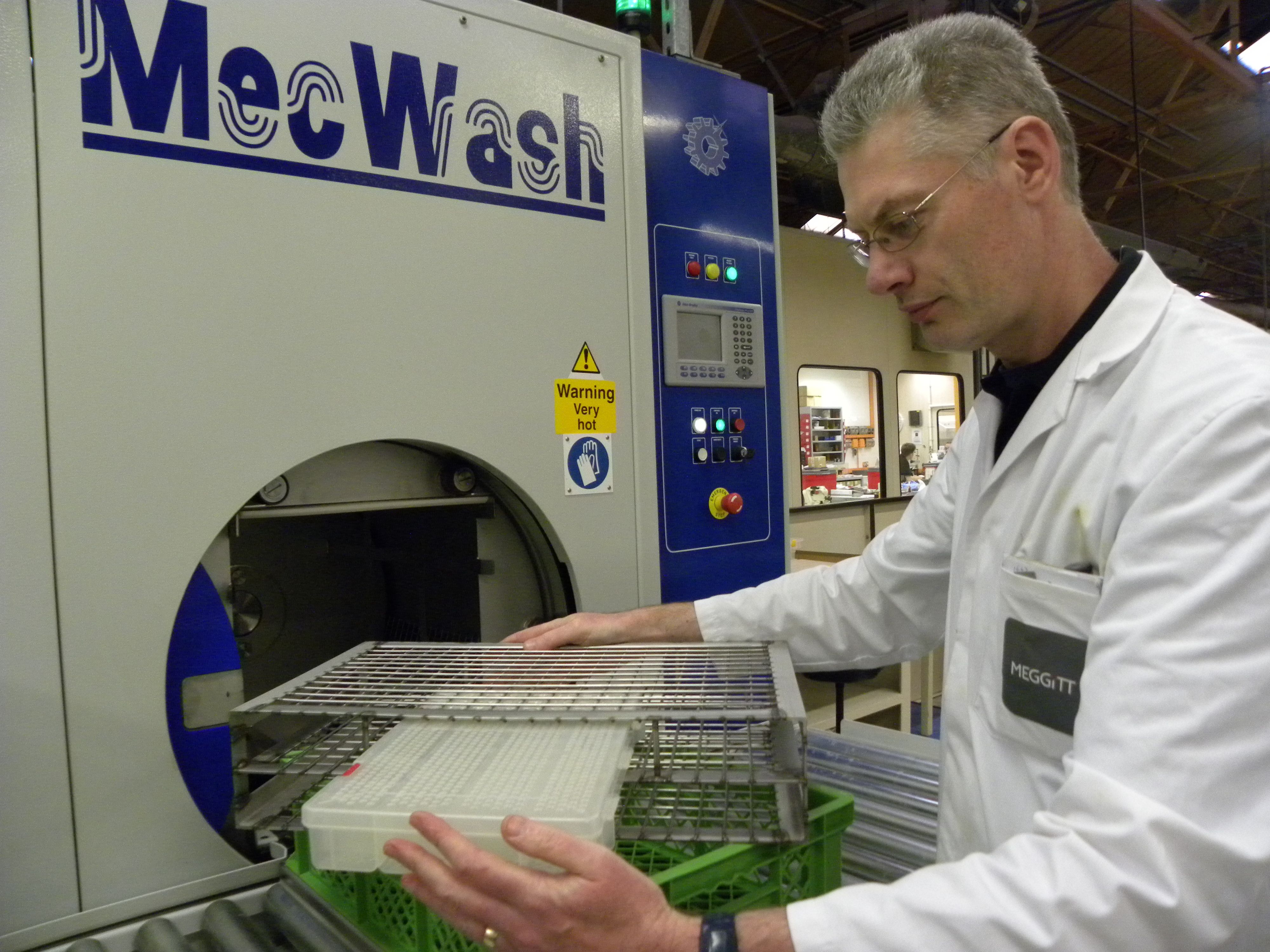The production of specialist aircraft components requires the highest level of manufacturing excellence - for which cleanliness is paramount. At Meggitt Aircraft Braking Systems, one of the worlds leading manufacturers in its field, this is a requirement that has been fully addressed by the use of aqueous cleaning technology from MecWash Systems Ltd.

Meggitt makes continuous use of two MecWash Midi units - one installed in the new build area and the other in the repair and overhaul department. In both cases, production is not only meeting extreme cleanliness objectives, but also addresses the requirements of the Solvent Emissions Directive by using an aqueous-based system.
"The bulk of our production is centred on the manufacture of wheels, brake-pads and control systems both for new build and refurbishment, the majority of which are used in extreme and challenging environments,"comments Terry Aubrey, Team Leader at Meggitt Aircraft Braking Systems' Coventry premises. "In turn, this means there is a wide variety of component sizes, shapes and materials used, all of which we wanted to pass through the cleaning system via a single button operation.
"We worked closely with MecWash to develop a series of basket and divider sections to allow us to process all loads, irrespective of size and make up, through a common 20 minute cycle. The in-built versatility that this variation of loading configurations gives us enables us to utilise maximum capacity irrespective of component design - whether extremely complex or relatively simple and whether in high or low volume."
The company manufactures in a range of materials including aluminium, stainless steel and brass, a number of which are plated. The complexity of many of the component shapes and configurations presents a drying challenge that is addressed by a vacuum drying system built into the MecWash design. "This ensures that there is no risk of water staying in small holes and recesses with a consequent risk of staining or corrosion," adds Terry Aubrey.
Stuart Kelly, fitter and tester for Meggitt Aircraft Braking Systems, draws attention to a number of key factors relating to both machines -
"In the new build area, products are cleaned and then coated with an inhibitor after machining to eliminate the risk of corrosion," he explains, "and it is the removal of this that is the principal function of this MecWash installation. The operation of the second MecWash Midi, in the repair and overhaul department, focuses on removing oils, greases and material collected over extensive periods of operation. This handles both our own braking components and those from alternative sources so versatility and performance, irrespective of design and configuration, are vital," he continues.
"In both areas, each manufactured unit could comprise up to 30 components so having a choice of basket dividers that allows these to be processed in unison is also fundamental. Add this to the ability of the MecWash system to perform without raising the temperature too high - of particular consideration with aluminium anodised components - and the ability of both machines in our two separate manufacturing areas, is even more notable,"he adds.
Both installations have been fitted with an Aqua-Save waste water processing system from MecWash Systems' Aqua-Save Technologies Division. Using a process of evaporation, the Aqua-Save separates the contamination from the wash water for disposal off site, the clean water is then reused in the wash. This not only enhances the environmental performance of Meggitt Aircraft Braking Systems, but also contributes to reducing disposal costs. Overall, maintenance is also kept to a minimum with Stuart Kelly reporting that the oil for the vacuum pump rarely needs to be changed whilst filters only need to be replaced annually.
"We have had a long and successful history of working with Meggitt in Coventry and we are delighted that this is being continued with these latest two installations," comments MecWash Systems' Managing Director, John Pattison. "The ability of our design to deliver excellent results coupled with considerable versatility in one of the most demanding sectors of manufacturing industry is clear. Providing such benefits from an aqueous system which is SED compliant also avoids burdensome regulatory issues and demonstrates a responsible attitude to the environment and employee well being."